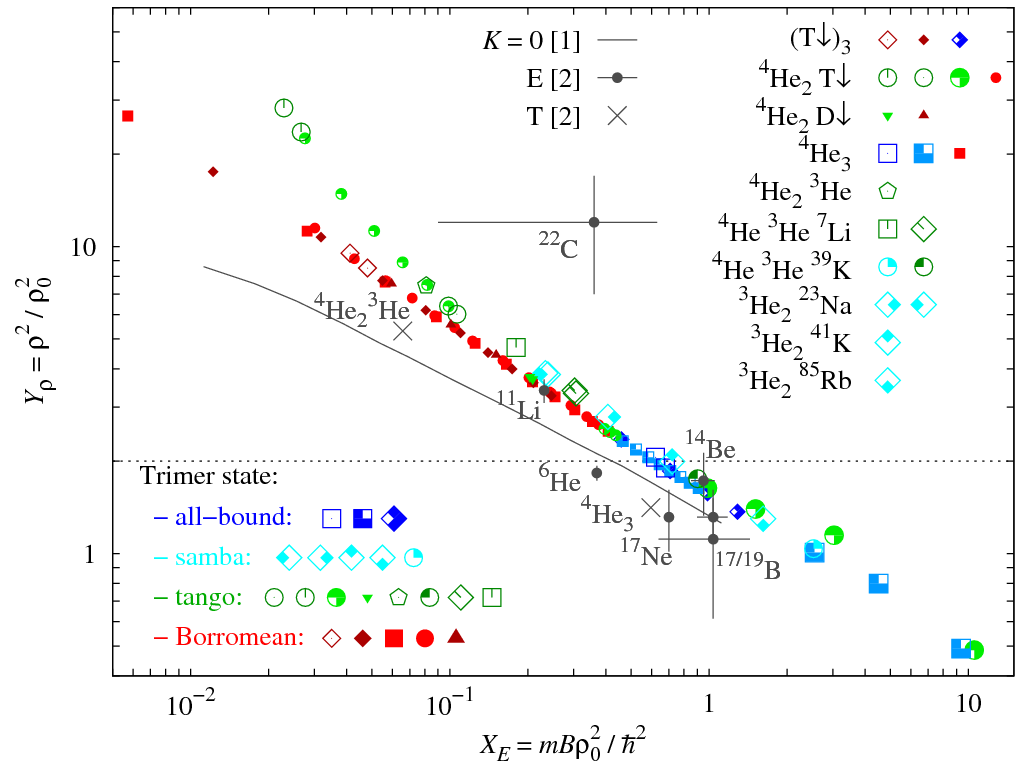Ultracold quantum gases nowadays provide unprecedented possibilities to study strongly correlated systems and address challenges in different fields of physics. The advantages they provide are tunability of interactions, possibility to control and explore dimensionality effects, disorder and quantum statistics. They allow the experimental realisation and study of both traditional models from condensed matter physics and novel systems such as spin-orbit coupled (SOC) bosons. Especially interesting are their universal properties, which enable establishment of connections between phenomena at different energy and length scales. The resonant regime of zero-scattering length provides a universal strongly interacting unitary limit.
In the regime of strong interactions it becomes important to have accurate theoretical predictions beyond mean field. Quantum Monte Carlo (QMC) methods have proved to be able to accurately solve many-body Schrodinger equation of atoms, molecules, liquids, solids and different model systems.
In this project we will further develop the QMC methods and apply them to few and many body systems of cold Bose and Fermi atoms with the goal to characterize their universal properties.
Lines of research:
Quantum halo states are usually defined as bound states which extend far into the classically forbidden regions. They were first recognized and traditionally explored in nuclear physics, but are also known to exist in molecular physics and have been recently created in ultracold gases using Fesbach resonances. If universality exists the properties of the system are describable by any interparticle potential where one or a few scattering parameters are the same. Radial extension of the cluster is a fundamental quantity which can be used to characterize the states. In order to analyse systems across different physics fields dimensionless scaling variables were introduced and scaled size and scaled energy compared (see RMP 76, 215 (2004)). We have recently able to establish both the more convenient scaling variables and the universal line which dimer and trimer halo states follow.

In this project we want to establish the range of universality of quantum halo states consisting of 4 and 5 atoms with special emphasis on realistic molecular systems. Molecular systems which will be explored include previously nominated candidates for quantum halo states 4He23He2, 4He2(T↓)2, 4He(T↓)3 and many others for which even stability is not known, such as systems (4He3He2-alkali atom) or (4He23He2-alkali atom).
In ultracold Bose gases universality appears particularly in the unitary limit, for systems with infinitely large s-wave scattering length. In that case a meaningful length-scale cannot be defined from two-body interactions, and the system becomes scale-invariant. In the last years unitary Fermi gas has been largely explored, arising from the interest in BCS-BEC crossover. Unitary Bose gas was considered to be experimentally inaccessible, due to mechanical instability of a Bose gas with attractive interactions at low T and resulting collapse to self-bound ground state. However, recent experiments have achieved stability for appreciable time scales.
In this project Bose-Bose and Bose-Fermi systems with more than few particles will be studied in traps of different dimensionality and in regimes with both weak and strong interactions, with the goal to determine how confinement changes their universal properties.
Furthermore, the role of disorder will be investigated. Especially interesting is the superfluid-insulator transition of Bose-Bose and Bose-Fermi mixtures and localization of superfluidity and Bose-Einstein condensation.
In the past couple of years new possibilities in the field of ultracold gases opened with the realisation of the spin-orbit coupling. In the field of ultracold gases SOC is synthetically engineered on demand using mostly laser fields. What makes SOC ultracold gases especially appealing is their simplicity and tunability of their interparticle interactions, which cannot be found in other systems. In these systems, many new exciting phases are expected to emerge, especially in the regime of strong interactions.
In this project, QMC methods will be further developed so that spin degree of freedom is explicitly accounted for, which will allow study of strongly interacting SOC gases and exploration of novel phases. The applications of the method will aim to answer how SOC changes universal few-body properties and superfluid-insulator transition.


